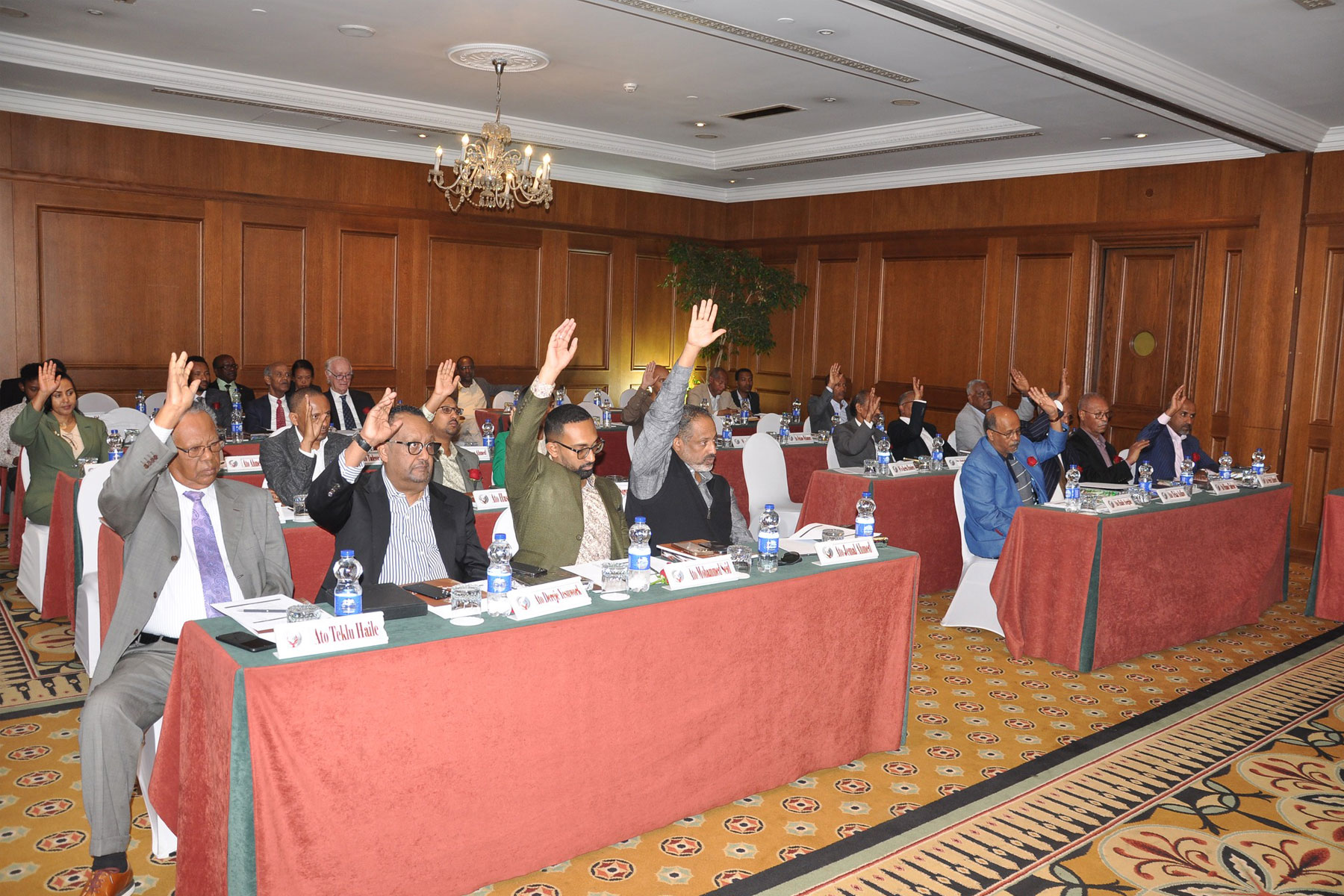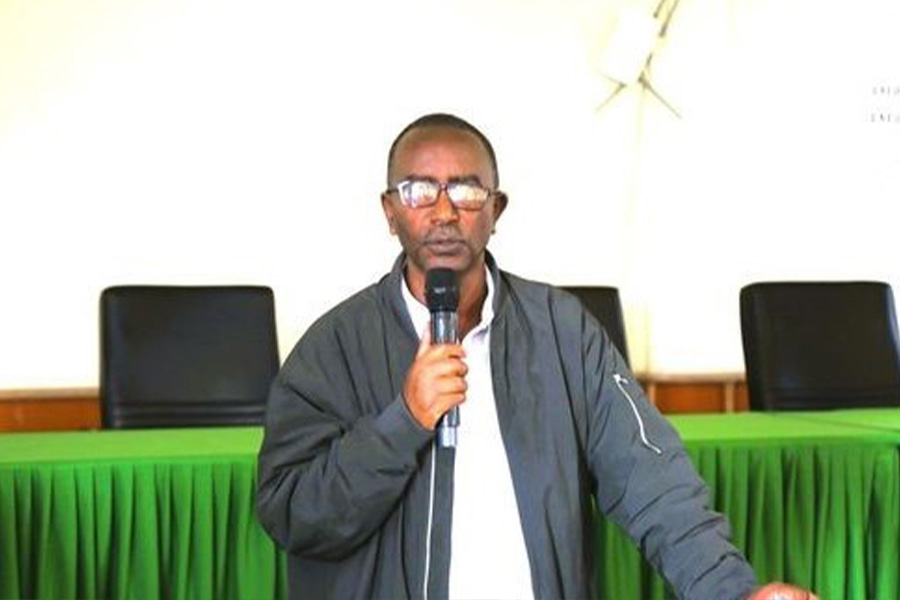
Months have gone by as the Planning & Development Commission hold meetings, brief diplomats, and gather sectoral proposals to draw up a national economic plan. Arguably, this was the easy part. Next on the bucket list for Fitsum Assefa (PhD) (right), head of the Commission, is devising a system for effective monitoring of implementation.
With her Deputy Commissioner, Endalkachew Sime (centre), she sat for a discussion at Skylight Hotel last Friday with chairs of parliament’s standing committees, and Speaker Tagesse Chafo, focusing on digitised and smooth monitoring of development indicators for the 10-Year National Perspective Plan.
Before this were the Growth & Transformation Plans (GTPs) that had subsequently been criticised for inadequate monitoring and follow-up. Several major projects, including the Grand Ethiopian Renaissance Dam (GERD), took longer to finish and incurred cost overruns.
Among the challenges identified during the discussion on Friday were lack of ownership, accountability and inclusiveness; weak coordination between planning, follow-up and evaluation, including formatting; and lack of institutional capacity to conduct monitoring.
The Commission is working on a "master reporting manual" to coordinate monitoring by different government offices and make use of a digital system to make evaluation and monitoring smoother.
The discussion was held at a time when the economy seems to be stuck in troubled waters. It is not that political problems have been addressed — although the government insists that it is time to move on, especially from the war in the north — but because the economic challenge is becoming more painful.
Inflation that has remained around 20pc is growing unbearable as food items and commodities such as fuel have increased in price, the latter to 25.82 Br a litre. The country’s external finances are in trouble, as the debt of the past decade is becoming harder to service owing to diminishing foreign currency reserves, enough to cover less than two months of imports. With the government mulling whether or not to request a restructuring of its debt, including from private creditors, yields on Ethiopia’s Eurobonds have slumped, while two major rating agencies, S&P and Fitch, have downgraded its creditworthiness.
PUBLISHED ON
Feb 13,2021 [ VOL
21 , NO
1085]

Radar | Dec 01,2024

Agenda | Aug 26,2023

Fortune News | Oct 13,2024

View From Arada | Dec 11,2021

Editorial | Feb 16,2019

Editorial | Nov 13,2021

Agenda | Nov 16,2024

News Analysis | May 18,2024

Editorial | Oct 14,2023

Fortune News | Jan 03,2025

Dec 22 , 2024 . By TIZITA SHEWAFERAW
Charged with transforming colossal state-owned enterprises into modern and competitiv...

Aug 18 , 2024 . By AKSAH ITALO
Although predictable Yonas Zerihun's job in the ride-hailing service is not immune to...

Jul 28 , 2024 . By TIZITA SHEWAFERAW
Unhabitual, perhaps too many, Samuel Gebreyohannes, 38, used to occasionally enjoy a couple of beers at breakfast. However, he recently swit...

Jul 13 , 2024 . By AKSAH ITALO
Investors who rely on tractors, trucks, and field vehicles for commuting, transporting commodities, and f...

Jun 28 , 2025
Meseret Damtie, the assertive auditor general, has never been shy about naming names...

Jun 21 , 2025
A well-worn adage says, “Budget is not destiny, but it is direction.” Examining t...

Jun 14 , 2025
Yet again, the Horn of Africa is bracing for trouble. A region already frayed by wars...

Jun 7 , 2025
Few promises shine brighter in Addis Abeba than the pledge of a roof for every family...